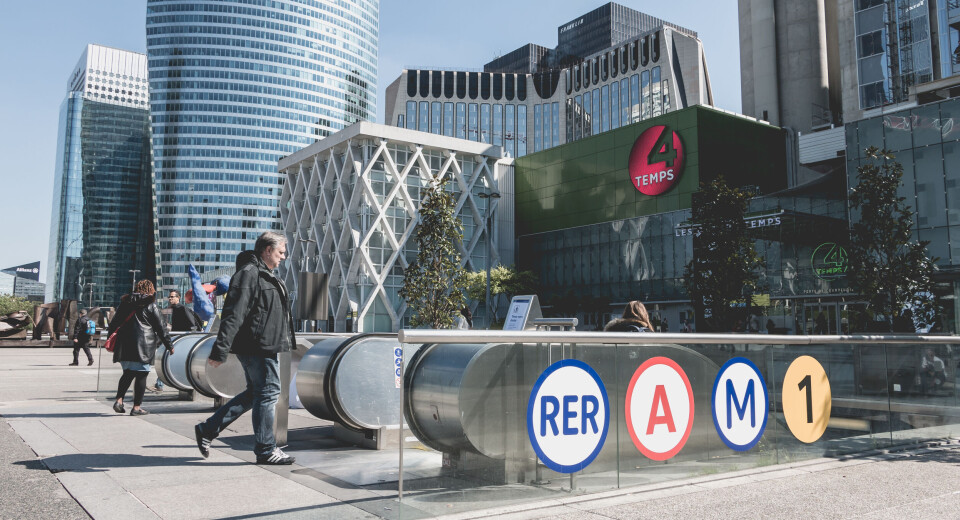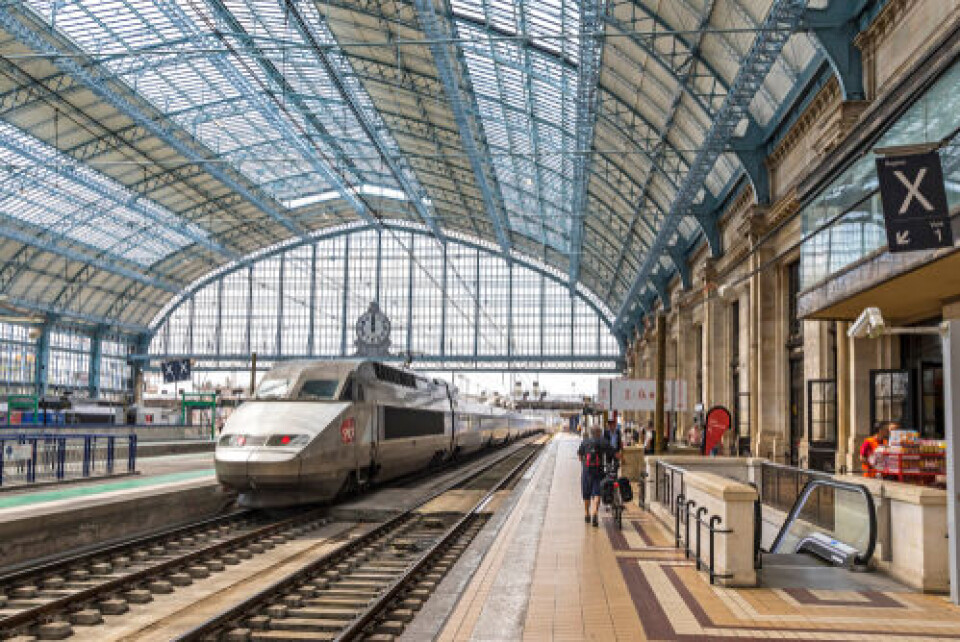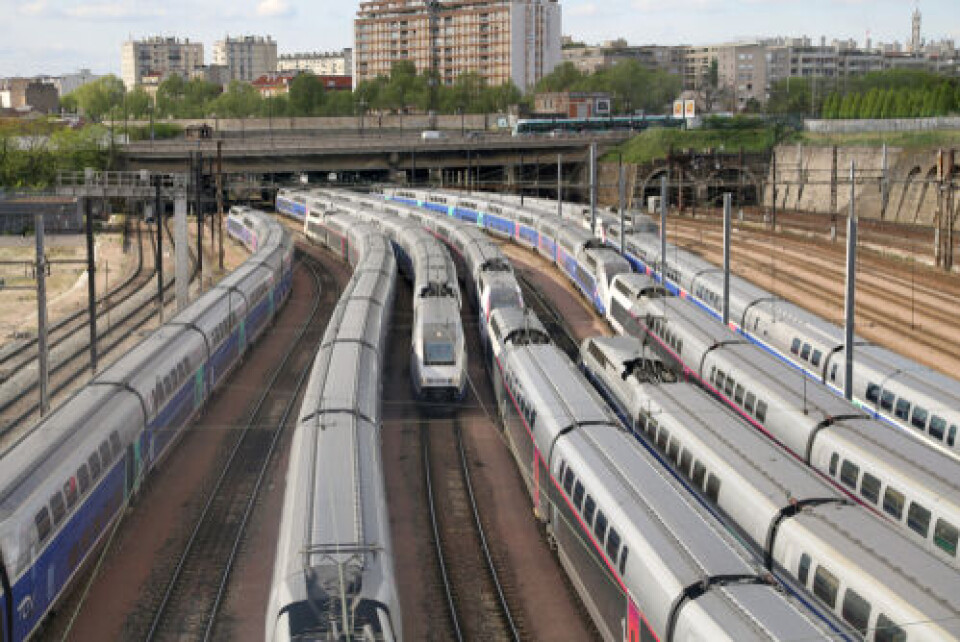-
Power outage suspends all Eurostar and Eurotunnel travel
A power outage in the Channel Tunnel has caused mass disruption
-
January 1 easyJet strike: French union calls for ‘zero take-offs’
Minority cabin crew union calls for one-day walkout over scheduling issues
-
Cars and driving: What's new in France in 2026
Changes include licence exchange fees, motorway toll changes and speed camera changes
Macron announces RER commuter train project for 10 French cities
The president sketches out his multi-billion euro, decade-long plan in a YouTube post

President Emmanuel Macron has announced a multi-billion euro, decade-long plan to revamp the French rail network in a YouTube video.
https://t.co/Z85aTRvqH2 pic.twitter.com/TeLsr3gx6J
— Emmanuel Macron (@EmmanuelMacron) November 28, 2022
He announced regional projects in ten French cities which will bring them up to speed with the linked up transport system which exists in Paris and its suburbs, known as the RER.
RER - Réseau Express Régional - is a hybrid commuter rail and rapid transit system. It acts as a combined city-centre underground rail system and suburbs-to-city-centre commuter rail in the Île-de-France area. In the city centre it acts much like the Paris Métro, though faster, having fewer stops.

“It is the way forward,” the president’s office at the Élysée Palace said, reports Le Monde. “However we still have to choose the towns and cities, the routes and the distribution of funding between the state, regions and operators.”
“I really believe in the train,” President Macron said in his video. “I am the grandson of a rail worker. I was born in Amiens because I had a grandfather living not far away to work on the trains, so I believe in them completely.”
The general secretariat for ecological planning had previously identified about 15 projects which Mr Macron is whittling down to ten priorities.
Prime Minister Élisabeth Borne will be in charge of "piloting these major works”.
“This will give a boost as well as help to fulfil our ecological ambition," explained Mr Macron. "I want us to have great national ambition and to develop an RER network in ten French cities… to draw the face of the France of tomorrow".
He is looking at a minimum of ten years to achieve this.
Which cities will benefit?
The contenders are expected to be those metropolises where traffic jams rival those of Paris, namely: Bordeaux, Lyon, Strasbourg, Lille and Toulouse.
Others may include Metz, Nantes, Aix-Marseille and possibly medium sized cities such as Rennes, Reims and Grenoble, although the president was not specific on detail.

How much will this cost?
SNCF President Jean-Pierre Farandou has estimated that a total of €100billion will have to be invested to bring the railways up to standard. He outlined a plan involving the creation of 13 metropolitan RERs in 13 major cities, at an estimated cost of €13billion.
For 10 cities as mentioned in Mr Macron’s vision, the cost would be about €10billion but according to some, the real bill would be double or even triple.
Passengers are worried about having to pay more for their season tickets, which have already been affected by the rising cost of electricity.
Parisian residents, for example, are preparing for an increase to the monthly cost of their Navigo pass, which could go up to €90 next year, the president of the Ile-de-France region Valérie Pécresse has said.
Who would pay?
In theory, the RER network depends on regional councils, but Transport Minister Clément Beaune has said: “We will determine the calendar, the funding, at the beginning of the year.”
Jean Rottner, president of the Grand Est regional council, has said that the project would need to be funded by state and regions alike, adding that “the success of this reform will also reform on the capacity of city authorities to co-fund the project, the capacity of SNCF to rise to the challenge and the head of state to give us the keys to the construction site.”
What is the timetable for the plans?
The president was not specific on timing or locations. The Élysée said this was because: "the strategy council for transport infrastructure is working to identify the projects which can be launched first".
The committee in charge should give its conclusions within a month, says an Elysée source, adding that, "in some cases, the work can begin quickly, [but that] elsewhere, it will be necessary to complete the studies underway.
“For the time being, such an initiative has already been launched in Strasbourg, where the official launch should be announced – barring any setbacks – in about ten days.”
What would be the ecological benefits?
It is claimed the positive ecological impact would be considerable because transport represents 31% of CO2 emissions in France. It would represent a significant “decarbonization of the economy,” not to mention the cut to air pollution.
Is any of this already in the pipeline?
Yes. Last April, the president of the Auvergne-Rhône-Alpes region, Laurent Wauquiez, promised to create an RER network by 2035, with a maximum budget of €7billion.
Similarly, the Hauts-de-France Express Network, which is supposed to strengthen the transport network between Lille and the neighbouring cities of the mining basin (Douai, Lens, Arras, Tourcoing, Hénin-Beaumont, Béthune and Seclin), and has been on the back-burner for more than ten years.
In 2010, the Nord-Pas-de-Calais region was already planning to launch an RER with 10 to 13 trains with a train every 17 minutes.
The project was slowed down in 2015 by the opposition of the Greens, who considered it too costly and unnecessary in areas suffering lack of equipment and finance.
Strasbourg is going to launch its REME – Réseau Express Métropolitain Européen – which is scheduled to open on December 11, “but there is a lack of drivers, signalmen and staff in the workshops and on the trains," says an SNCF agent.
Bordeaux project
In Bordeaux, a project is already in its public consultation phase. For years, local elected officials have been working on it: to improve the frequency of the regional express trains (TER) that run around and through Bordeaux, like the famous RER: with service frequencies of a quarter of an hour to half an hour.
In 2030, according to Bordeaux Metropole's forecasts, there will be 150 additional trains per day, compared to 2020, on the entire network.
This Gironde project involves 300 kilometres of track, 54 stations and rest stops and is expected to carry 38,000 passengers every day – in a department where nearly 1.2 million people live less than 20 minutes by car from a station.
The estimated cost is €590million for the rail infrastructure, coming from the state, region, department and city and €90million for the rolling stock.
These RERs would be a major project, comparable to the Grand Paris Express launched in 2007 by Nicolas Sarkozy, on the scale of regional metropolises.
Inspiration from the past?
While the spade work and organisation of Mr Macron’s plan will be regional, the ambition is national.
Perhaps he has taken inspiration from the ‘Freycinet plan’, named after the Minister of Public Works from 1877 to 1879, Charles de Freycinet, who boldly reinvested massively in railways to restore cohesion to the country while preserving the environment.
At the time, France considered that the Franco-Prussian war had been lost in part because the transportation networks were insufficient to allow the rallying of men to the place of conflict. The new rail network also laid the tracks for economic recovery.
Ports were linked up as were canals. A plan of unprecedented scope in the 19th century, marked by a sudden 40% increase in investment spending, to create 181 lines and 8,848 kilometres of railroads known as "general interest.” GDP over the next three years was boosted by 20%.
Related articles
New UK-France air routes, EU checks alert: Nine France travel updates
Eurostar says response times improving after customers report issues
EU entry form fraud alert, railcard sale: 9 France travel updates
























